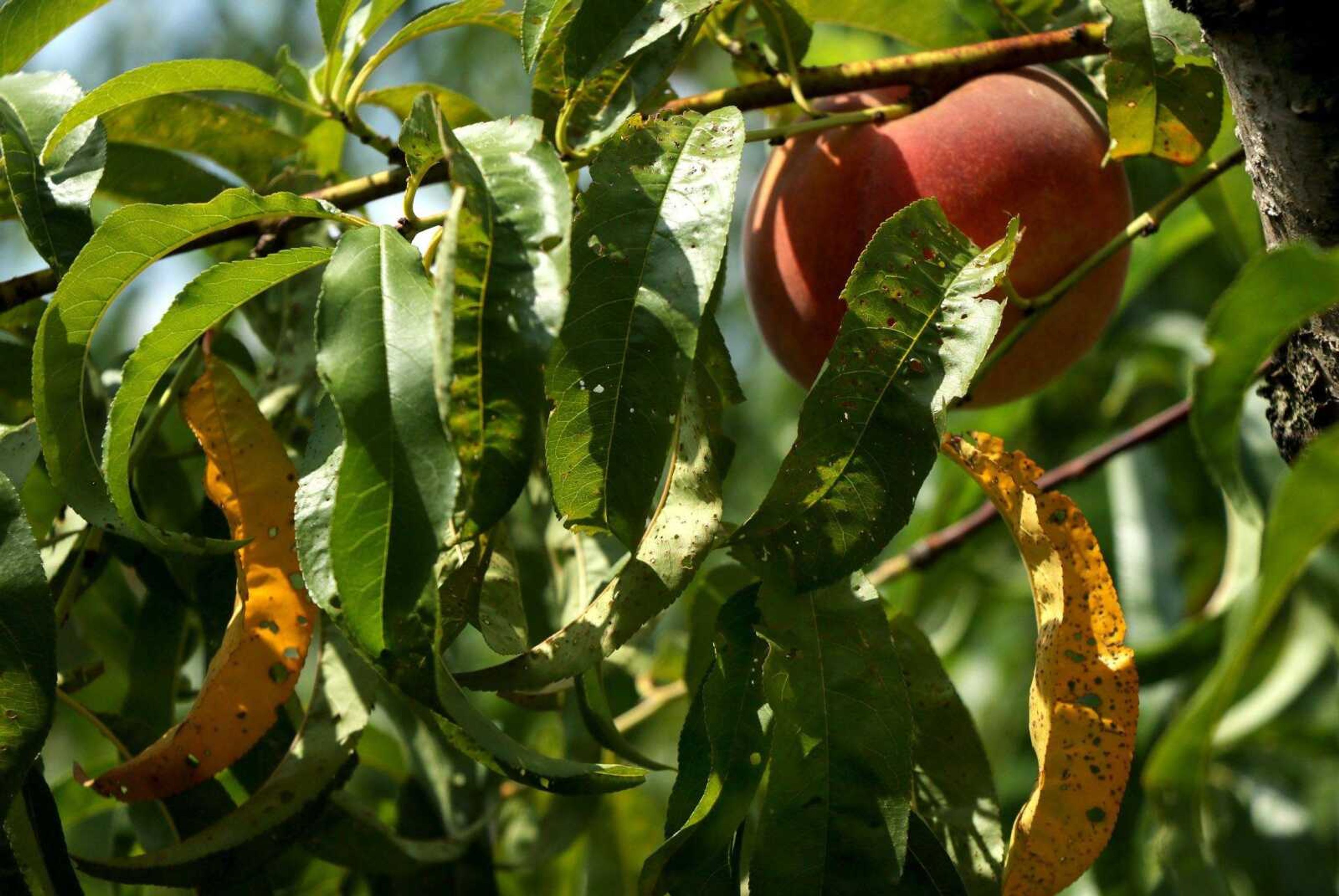Bootheel lawmaker seeks probe into crop damage by illegal herbicide spraying
A Missouri House committee appears poised to hold a special hearing to investigate the damage from illegal spraying of dicamba herbicide on Missouri crops. State Rep. Don Rone, R-Portageville, has asked House Speaker Todd Richardson, R-Poplar Bluff, to allow the House Agriculture Committee to hold the special hearing. Rone said he is optimistic the hearing will be held this fall...
A Missouri House committee appears poised to hold a special hearing to investigate the damage from illegal spraying of dicamba herbicide on Missouri crops.
State Rep. Don Rone, R-Portageville, has asked House Speaker Todd Richardson, R-Poplar Bluff, to allow the House Agriculture Committee to hold the special hearing. Rone said he is optimistic the hearing will be held this fall.
The herbicide has damaged thousands of acres of farmland and cost Bootheel growers millions of dollars in lost crops, Rone said Tuesday.
Missouri already has seen more than 100 complaints of dicamba misuse, which has damaged more than 42,000 acres of crops, Rone said.
This year's dicamba exposure has damaged more than 39,000 acres of soybeans, 3,000 acres of tomatoes, 1,000 acres of non-genetically-modified cotton, 700 acres of peaches, 400 acres of peas and 200 acres of peanuts in Southeast Missouri, he said.

Rone said in many cases, the herbicide was sprayed to control weeds in fields with genetically modified cotton, which is not harmed by the chemical.
Jim Heiser, research associate in weed science at the University of Missouri Fisher Delta Research Center in Portageville, said he has seen the symptoms of dicamba exposure, particularly on soybeans. Soybean leaves have puckered as a result of exposure to the herbicide.
But Heiser said the severity of the damage won't be known until harvest.
Rone, however, said the damaged crops will mean decreased yields this fall.
The herbicide legally can be used as a "burn-down" on a field several weeks before planting. It is illegal to apply dicamba during the growing season, according to Rone.
But some farmers have applied the chemical on fields where they are growing dicamba-resistant crop varieties. The problem is the herbicide can drift into neighboring fields when blown by the wind or when liquid particles become gas and spread as vapors, according to University of Missouri agricultural experts.
As a result, crops that are not dicamba-resistant can be harmed, Rone and Heiser said.
Heiser said the dicamba likely was sprayed in June when there were above-normal temperatures and above-normal humidity. But he said the real problem rests with the actions of farmers.
"It all comes back to, it shouldn't have been applied in the first place," he said.
Heiser said the crop damage has been most severe in New Madrid, Dunklin, Pemiscot and Stoddard counties.
Rone said he plans to introduce legislation in the 2017 session to stiffen fines for spraying that damages farmers' crops.
The penalty currently is $1,000 per field, a small price for farmers to pay to control troublesome weeds, Rone said.
"I am going to completely change that," he said.
Rone wants to increase the penalty to $2,000 per field for those who spray a legal product, with the penalty doubling to $4,000 per field for farmers whose spraying damages neighboring crops twice in three years. As for illegal spraying, Rone proposed levying a fine of $20,000 per field to discourage such practices.
The state lawmaker said farmers should know how to apply herbicides properly.
Even in cases of herbicides that legally can be used, Rone said each product comes with information indicating when it should be applied and what wind velocity is permissible for such application. Farmers are required to keep records of their application of such chemicals, he said.
Rone said state lawmakers need to take steps to protect Missouri agriculture, the state's number one industry. He said the "welfare of agriculture is of the utmost importance to both our economy and our citizens' livelihood."
mbliss@semissourian.com
(573) 388-3641
Connect with the Southeast Missourian Newsroom:
For corrections to this story or other insights for the editor, click here. To submit a letter to the editor, click here. To learn about the Southeast Missourian’s AI Policy, click here.









